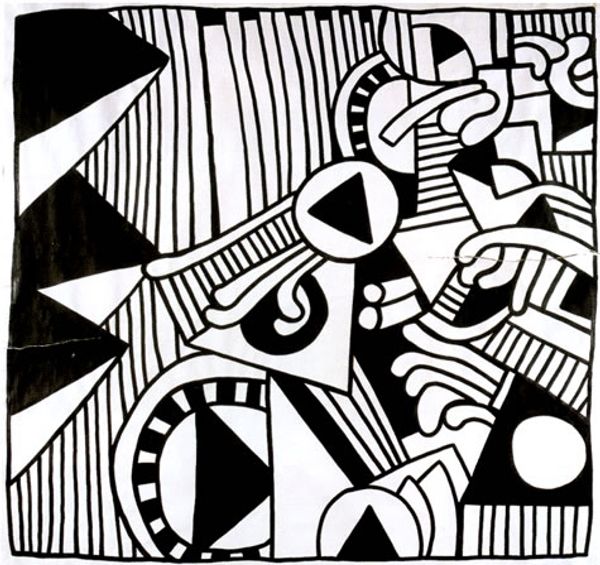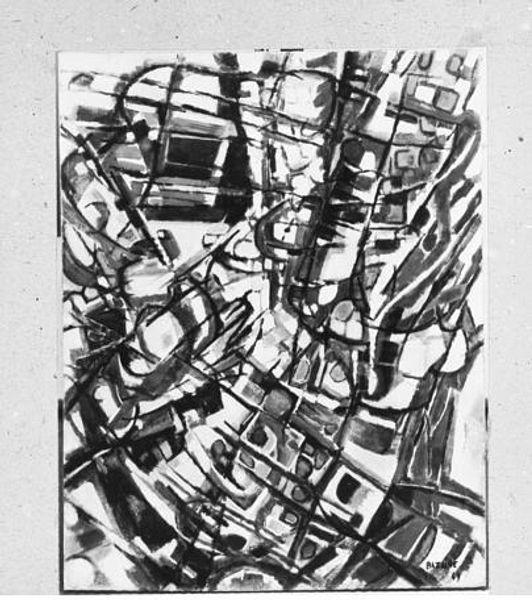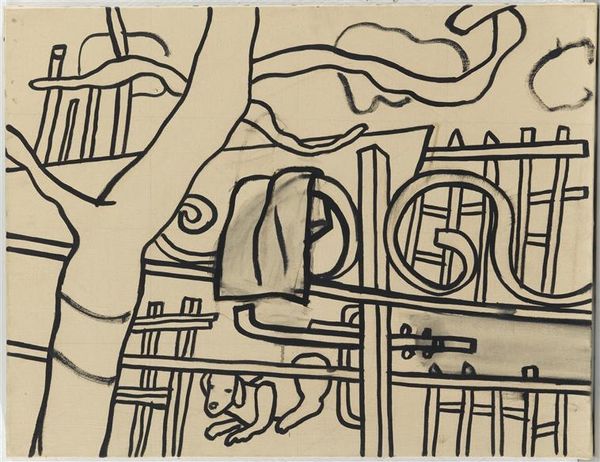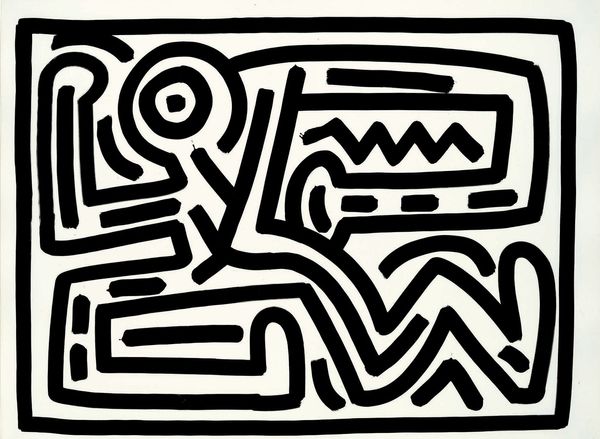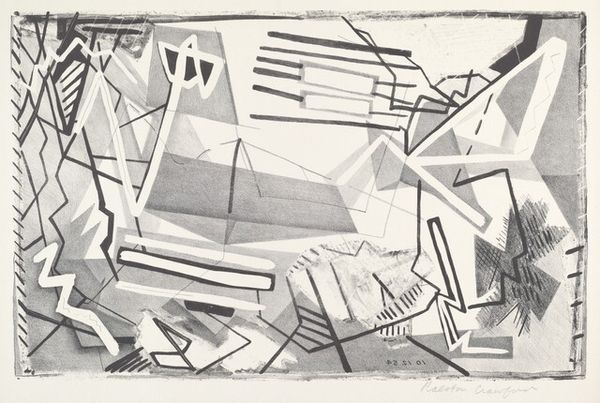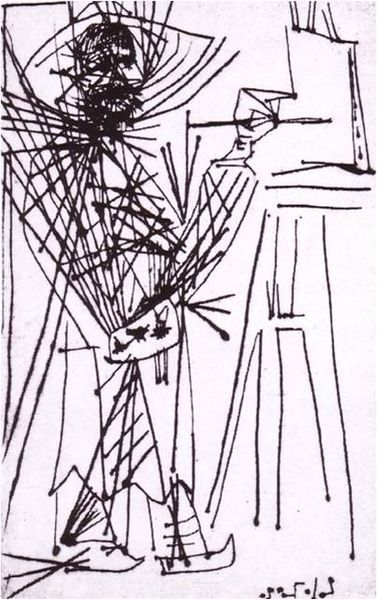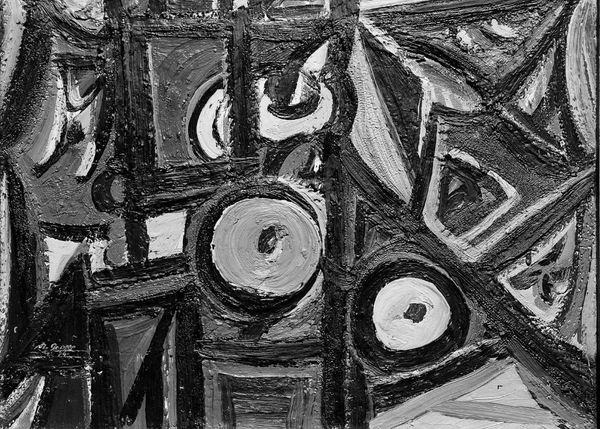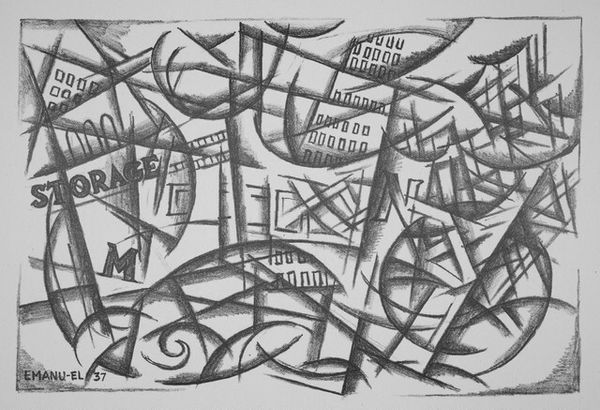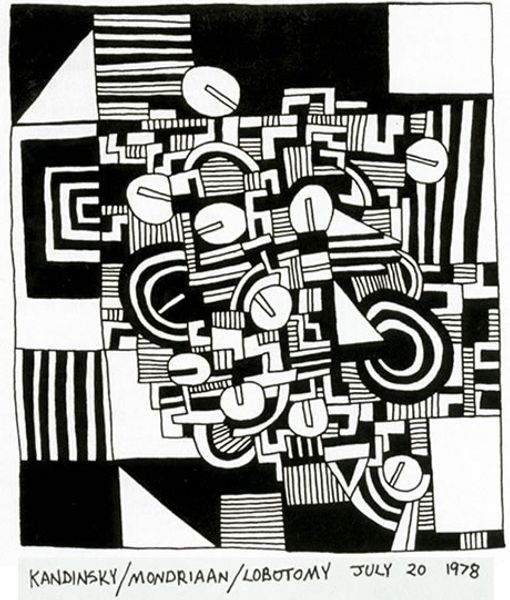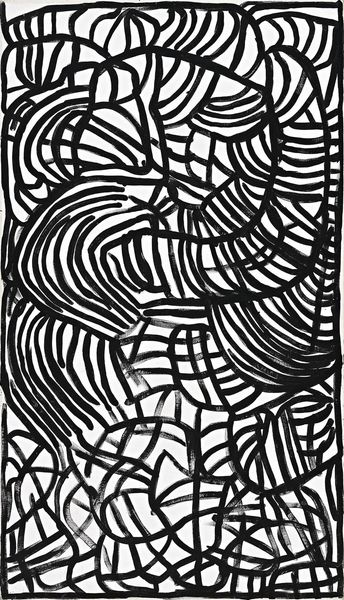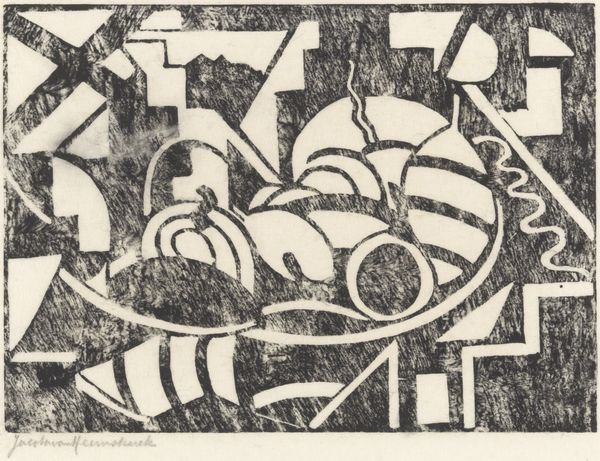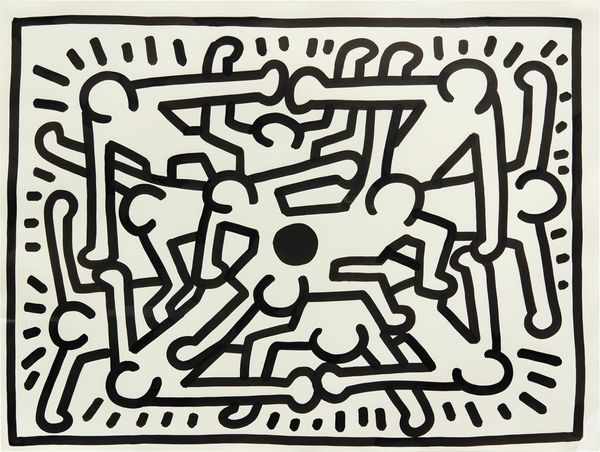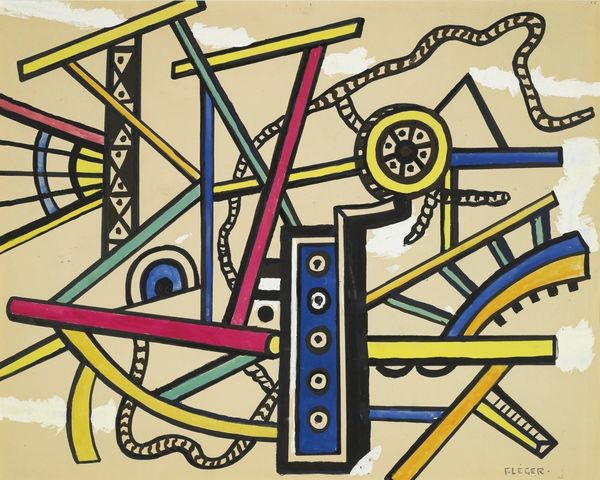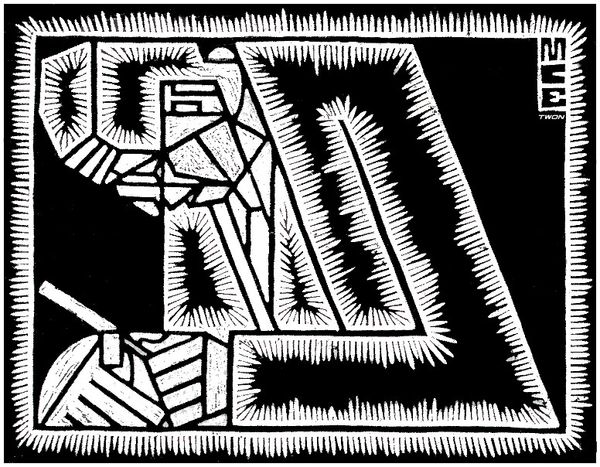
print, linocut
#
abstract-expressionism
# print
#
linocut
#
woodcut effect
#
linocut print
#
geometric
#
line
#
modernism
Dimensions: 50.5 x 65.2 cm
Copyright: Fernand Leger,Fair Use
Editor: We're looking at Fernand Léger's "Agricultural Machinery," a linocut print from 1953. The composition is striking, like a technical diagram but flattened and abstract. There’s something very stark and almost… optimistic about it? What do you see in this piece? Curator: That optimism, I think, stems from a very specific moment. Léger made this after the Second World War. The industrial landscape, often depicted as dehumanizing, is here re-imagined. How do you think the war impacted art like this? Editor: Well, after the devastation, there'd be a focus on rebuilding, right? So, maybe machines are less about alienation and more about progress? Curator: Exactly. And it’s not just any progress. Think about the political context. Léger was a communist. The title directs us to think about the rise of the proletariat and machines were supposed to be used for people’s liberation. Do you see hints of other kinds of messaging here, that relate to other workers? Editor: Hmm, I notice all the simplified shapes could just as easily come from construction equipment as farming tools. It feels like a celebration of all labour. Curator: Precisely! It becomes about a collective vision of industry, but that visual language, of reducing figures and machinery to geometric forms – can also be viewed as reductive when viewed through the lens of gender or race, particularly around notions of labour or “usefulness.” Léger’s enthusiasm has complexities. Editor: That makes me rethink my initial optimism. Is this progress for everyone? Thanks for that context. I now see more tension here. Curator: Art constantly invites reevaluation based on these complex social factors.
Comments
No comments
Be the first to comment and join the conversation on the ultimate creative platform.
